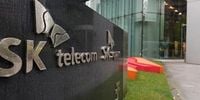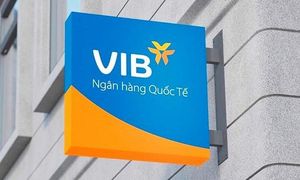On April 28, 2025, SK Telecom's stock price fell more than 4% in early trading, a decline attributed to growing concerns over a hacking incident that compromised subscriber USIM (Universal Subscriber Identity Module) information. The stock was trading at 55,200 won, down 4.50% from the previous trading day, continuing a downward trend that began shortly after the hacking was revealed.
The hacking incident, which occurred on April 19, involved a malicious code attack that compromised sensitive data stored on SK Telecom's home subscriber server (HSS). This data included phone numbers, USIM authentication keys, mobile subscriber identification numbers (IMSI), and device unique identification numbers (IMEI). During a briefing held on April 25, SK Telecom’s CEO publicly apologized and outlined measures to enhance customer information protection.
In response to the breach, SK Telecom announced that it would offer free USIM replacements to affected subscribers, a move expected to cost the company hundreds of billions of won. As of April 28, the company was conducting free USIM replacement services at approximately 2,600 T World stores nationwide, starting at 10:00 AM KST. However, the company faced a significant challenge: it currently holds about 1 million USIM cards, while the total number of subscribers, including those using mobile virtual network operators (MVNOs), is around 25 million.
Concerns over the potential for SIM swapping—where stolen USIM information can be used to gain access to victims’ bank or cryptocurrency accounts—have heightened anxiety among customers. Reports indicate that some insurance companies have halted SK Telecom authentication services due to these security concerns. Prime Minister Han Duck-soo has also instructed an inspection of the measures taken in response to the incident.
The fallout from this hacking incident has not only impacted SK Telecom but has also affected related companies. Stocks of USIM suppliers like Excuar surged, with shares increasing by 29.79% to 5,010 won as investors anticipated a spike in demand for USIM cards. Other companies linked to USIM technology, such as Ubivelox and Hansol Inticube, also saw significant gains, with shares rising by 29.99% and 17.36%, respectively.
As SK Telecom's stock continued to decline, trading at 55,400 won at 9:24 AM KST, the situation reflected a broader trend of investor anxiety surrounding the company's ability to manage the fallout from the breach. The stock had opened the day at 55,450 won and dipped as low as 54,900 won during trading.
Amidst the turmoil, security stocks experienced a notable rise. Companies in the cybersecurity sector, such as Hansol Inticube, saw their stocks jump by the maximum allowable limit of 30%, reaching 6,890 won. Other security firms like MOneta and Ssaeon also reported significant increases, with shares rising by 19.91% and 15.97%, respectively. This surge reflects a market reaction to the increased focus on cybersecurity following the breach at SK Telecom.
The hacking incident has raised questions about the security of mobile phone identity verification and text message authentication. With the potential for hackers to create fraudulent devices using the leaked USIM information, customers are understandably on edge. The Ministry of Science and ICT and the Korea Internet & Security Agency (KISA) have issued warnings about phishing attempts that exploit the situation, urging users to remain vigilant against fraudulent schemes disguised as offers for free USIM replacements.
As the crisis unfolds, SK Telecom is working to reassure its customers. The company has stated that it will take full responsibility for any damages incurred as a result of the breach. However, the challenges of managing public trust and ensuring security remain significant hurdles.
In light of these developments, the telecommunications industry is closely monitoring the situation. The incident serves as a stark reminder of the vulnerabilities that exist in the digital age and the critical importance of robust cybersecurity measures. With the stakes high, both consumers and companies alike are left to grapple with the implications of this hacking incident and its aftermath.
As the situation continues to evolve, stakeholders are watching closely to see how SK Telecom will navigate this crisis and what long-term impacts it may have on the company and the broader telecommunications sector.

![[특징주] SK텔레콤, 유심 해킹 2차 피해 우려 '하락'](https://thumbor.evrimagaci.org/NxNTWVwennLDfL0RlZYn6nlXo24=/200x0/tpg%2Fsources%2F1360acfc-cc79-4cc1-8e2c-15e162768cb2.jpeg)



